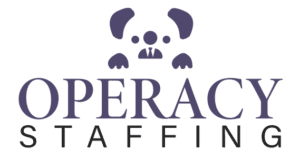In today’s dynamic work environment, consulting has emerged as a rewarding career path for professionals seeking flexibility, autonomy, and growth. Whether you’re drawn to the freedom of freelancing or the stability of full-time employment, the world of consulting offers diverse opportunities. But which path is right for you?
If you’ve been exploring consultant jobs or considering a transition into Australian offshore services, understanding the pros and cons of each model will help you make an informed choice.
Understanding the Two Paths
Before diving into the comparison, let’s define the two formats:
Freelance Consulting involves working independently, offering services to various clients on a contract basis. Freelancers often manage multiple clients and projects simultaneously.
Full-Time Consulting means working as an employee or long-term contractor for a consultancy firm or corporate organisation. This model typically includes a fixed salary, benefits, and structured responsibilities.
Both options can be rewarding, but the right fit depends on your lifestyle, financial goals, and long-term vision.
Benefits of Freelance Consulting
1. Flexibility and Autonomy
One of the most attractive features of freelancing is the freedom to choose your clients, working hours, and projects. Freelancers can work remotely, making it ideal for those considering a digital nomad lifestyle or participating in Australian offshore services from anywhere in the world.
2. Unlimited Earning Potential
While freelancers don’t have a guaranteed income, their earnings aren’t capped by a salary. High-performing freelance consultants can charge premium rates and earn significantly more than their salaried counterparts, especially in niche areas such as tech, digital marketing, or finance.
3. Broader Experience
Working with different clients across industries can help you quickly expand your skill set and professional network. This exposure is valuable if you’re still exploring which sectors or services interest you most within the consulting field.
4. Tax and Business Deductions
Operating as a sole trader or small business gives you access to tax deductions on business expenses, including travel, equipment, and software.
Downsides of Freelancing
1. Unstable Income
Freelancing can be feast or famine. Especially in the early stages, you may struggle to maintain a consistent stream of client work and income.
2. No Employee Benefits
Freelancers need to cover their own health insurance, superannuation, and paid leave. These added responsibilities can increase your financial burden.
3. Administration Work
As a freelancer, you are your own business. That means managing invoicing, taxes, client communication, and marketing—all on your own.
Benefits of Full-Time Consulting
1. Job Security and Stability
Full-time consulting offers a predictable income, regular pay, and job security. For those supporting families or seeking financial stability, this can be a major plus.
2. Access to Benefits
Employee benefits such as annual leave, sick pay, superannuation contributions, and professional development programs add significant value to a full-time role.
3. Mentorship and Team Support
Working within an established consultancy gives you access to mentorship, structured training, and collaboration opportunities—great for early-career professionals.
4. Easier Entry into the Industry
Securing a full-time position in an agency or firm can be a smoother way into consultant jobs, especially if you're building experience or looking to specialise in sectors like IT, HR, or Australian offshore services.
Downsides of Full-Time Roles
1. Limited Flexibility
Working full-time often means adhering to set hours, commuting (if not remote), and taking direction from supervisors, which can limit your independence.
2. Capped Earning Potential
No matter how hard you work, your salary is generally fixed unless you get promoted or receive performance bonuses.
3. Potential for Burnout
Full-time consulting roles can be demanding, especially in client-facing positions. Long hours and tight deadlines are common.
Which One’s Right for You?
Here are a few guiding questions to help you decide:
Do you value flexibility over stability?
Are you comfortable managing your own business operations?
Are you financially prepared to handle fluctuating income?
Do you want to specialise in one sector or gain diverse experience?
If you’re starting out, a full-time consulting role can help you gain structure, training, and experience. Once you’ve built a solid foundation, transitioning into freelance work might allow you to earn more and enjoy greater independence.
For professionals working in or with Australian offshore services, freelancing can be particularly attractive. The ability to work remotely with international clients aligns well with the nature of offshore work. On the other hand, full-time roles in this sector can offer the security and team support that some professionals prefer.
Final Thoughts
There’s no one-size-fits-all answer when it comes to choosing between freelance and full-time consulting. Each offers unique advantages and challenges. By understanding your goals and evaluating your readiness for independence, you can choose a path that not only fits your lifestyle but also helps you thrive in the world of consultant jobs and Australian offshore services.
